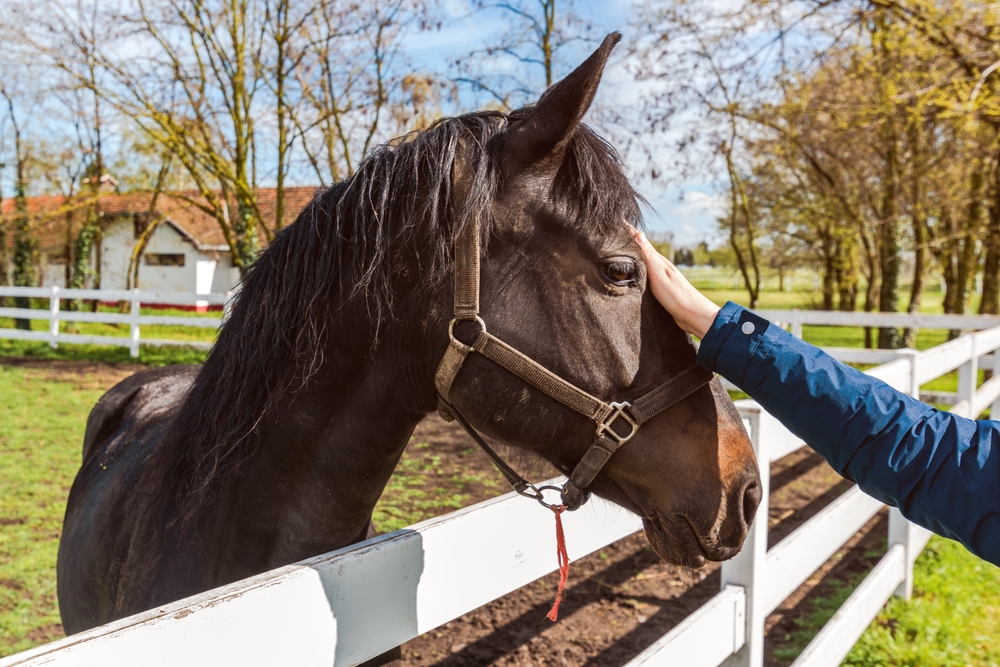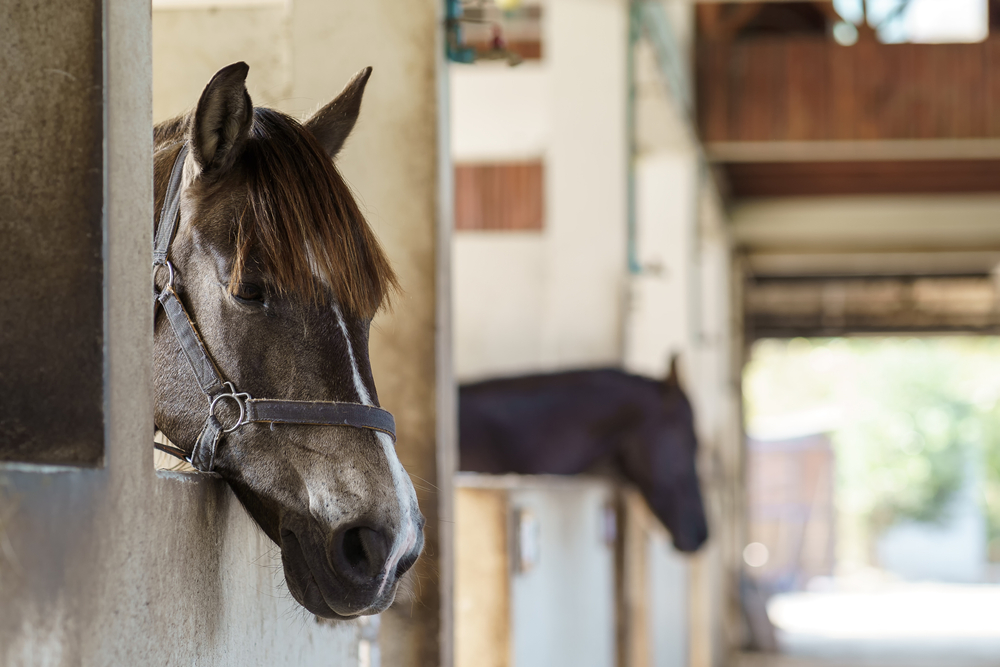When your horse shows signs of illness, getting an accurate diagnosis quickly can make all the difference in their recovery. At South Valley Equine, we understand that waiting and wondering about your horse’s health creates stress for both you and your equine partner. That’s why we’ve invested in state-of-the-art diagnostic equipment and assembled a team of specialists who excel at uncovering the root causes of health issues. Our comprehensive diagnostic services help us create targeted treatment plans that get your horse back to feeling their best.
Advanced Diagnostics

Understanding Advanced Diagnostics
Advanced diagnostics in equine medicine go far beyond basic physical examinations. These sophisticated tools allow us to see inside your horse’s body without invasive procedures, revealing details that would otherwise remain hidden. From bone fractures invisible to the naked eye to subtle soft tissue injuries affecting performance, modern diagnostic technology helps us identify problems early when they’re most treatable. This precise approach to diagnosis means less guesswork, faster treatment, and better outcomes for your horse.

Our Advanced Diagnostics Services
Our facility houses a complete range of advanced diagnostic tools, each serving a specific purpose in evaluating your horse’s health. Here’s how each technology helps us provide the specialized and personalized care your horse deserves.
MRI
Standing Magnetic Resonance Imaging represents one of the most significant advances in equine diagnostics. Unlike traditional imaging that requires general anesthesia, our standing MRI system allows horses to remain on their feet with just mild sedation. This technology excels at revealing soft tissue injuries that other imaging methods might miss, particularly in the complex structures of the hoof and lower leg.
Radiology
Digital radiography has revolutionized how quickly we can assess bone health in horses. Our high-resolution digital sensors capture crystal-clear X-ray images instantly, eliminating the wait times associated with traditional film processing. This technology proves invaluable for diagnosing fractures, monitoring arthritis progression, identifying developmental orthopedic diseases, and evaluating dental problems.
Ultrasonography
Ultrasound technology gives us real-time views of soft tissues and fluid-filled structures throughout your horse’s body. This versatile, non-invasive tool has become indispensable for evaluating tendon and ligament injuries, making it the gold standard for sports medicine cases. Beyond orthopedic applications, ultrasound helps us examine abdominal organs during colic evaluations, assess cardiac function, evaluate reproductive structures, or guide injections with pinpoint accuracy.
Video Endoscopy & Gastroscopy
Our endoscopy equipment allows us to directly visualize areas of your horse’s body that would otherwise remain hidden. Upper airway endoscopy reveals problems in the nasal passages, throat, and voice box that might be limiting your horse’s performance. We can even perform dynamic endoscopy during exercise to catch issues that only appear when your horse is working hard. Gastroscopy has become essential for diagnosing stomach ulcers, a common problem affecting up to 90% of performance horses.
Comprehensive Laboratory Services
Our fully equipped in-house laboratory delivers rapid results for critical cases, while partnerships with reference laboratories provide specialized testing when needed. We analyze blood, urine, synovial fluid, and other samples to assess organ function, detect infections, and identify metabolic disorders like Cushing’s disease. This laboratory support helps us investigate everything from subtle performance issues to life-threatening conditions, ensuring we have complete diagnostic information to guide treatment decisions.
Our Advanced Diagnostics Process
Evaluating Your Horse’s Condition
When you bring your horse to South Valley Equine for diagnostic services, we begin with a thorough discussion of your concerns and observations. Our veterinarians take time to understand your horse’s history, current symptoms, and performance expectations. This initial assessment helps us determine which diagnostic tools will provide the most valuable information for your horse’s specific situation.
Mapping Out the Diagnostic Approach
Based on our clinical findings and your horse’s needs, we develop a strategic diagnostic plan tailored to uncover the root cause of the problem. We explain why we recommend each test and how it fits into the full diagnostic picture. Our team considers factors like your horse’s temperament, the urgency of the situation, and your goals when designing the diagnostic approach.
Running the Tests
Our experienced technicians and veterinarians work together to perform diagnostic procedures with minimal stress to your horse. Throughout the process, we maintain open communication, explaining what we’re doing and what we’re finding. Many of our diagnostic tools provide immediate results, allowing us to discuss findings with you right away and begin formulating treatment recommendations.
Breaking Down the Results
Once we’ve completed the diagnostic workup, we provide detailed explanations of our findings to help you understand what we’ve discovered. We discuss treatment options based on the diagnosis, including expected outcomes and recovery timelines. Our team offers specific management recommendations to support your horse’s healing and prevent future problems.
Monitoring Recovery
We schedule appropriate follow-up appointments to reassess healing tissues or evaluate treatment effectiveness. Our team remains available to answer questions between appointments and adjust treatment plans based on your horse’s response. We maintain detailed records of all diagnostic findings, creating a valuable health history that helps guide future care decisions.
Why Choose Us for Advanced Diagnostics
At South Valley Equine, we see ourselves as more than just a diagnostic facility. We’re your partner in maintaining your horse’s health and happiness. Our team, including Dr. Kaitlyn James and other dedicated veterinarians, combines expertise in advanced diagnostics with genuine compassion for every patient we treat. We’ve built our reputation as the referral clinic for complex cases by investing in cutting-edge technology while maintaining the personalized care that sets us apart. Our 24/7 availability means you’re never alone when facing urgent health concerns, and our commitment to clear communication ensures you understand every step of the diagnostic process. We believe that accurate diagnosis forms the foundation of effective treatment, which is why we use multiple imaging modalities together to get complete answers.

Get Peace of Mind With Advanced Diagnostics at South Valley Equine
When you notice changes in your horse’s performance or suspect something isn’t quite right, having access to comprehensive advanced diagnostics can provide peace of mind and clear direction for treatment. South Valley Equine offers the diagnostic expertise and technology you need, conveniently located and easy to find on Google Maps with numerous positive Yelp reviews from satisfied clients. Follow us on Facebook, Instagram, YouTube, and LinkedIn for educational content about equine health and updates from our clinic. Call 801-254-2333 today to schedule your diagnostic consultation and let our team help uncover the answers you need for your horse’s optimal health.
FAQs
Does a horse need to be sedated for an MRI?
Yes, horses do require sedation for MRI procedures, but the good news is that our standing MRI system only requires mild sedation rather than general anesthesia. Your horse remains on their feet throughout the scan, which is much safer than lying down under full anesthesia. The sedation keeps your horse calm and still enough to obtain clear images, usually taking 45–90 minutes, depending on the area scanned.
When to ultrasound a horse for pregnancy?
The first pregnancy ultrasound typically occurs around 14-16 days after breeding to confirm initial pregnancy. A second ultrasound around 25-30 days confirms a heartbeat and a viable pregnancy. Many veterinarians recommend another check at 45-60 days to ensure continued fetal development. Our veterinarian will let you know when the best time to schedule your follow-up ultrasound.
How to read an equine ultrasound?
Reading equine ultrasounds requires understanding that different tissues appear in varying shades of gray and white on the screen. Bone appears bright white because it reflects sound waves completely, while fluid appears black because sound waves pass through it easily. Soft tissues like tendons and ligaments show various gray shades depending on their density and fiber alignment. Our veterinarians look for changes in normal tissue patterns, such as dark areas within tendons indicating tears or fluid accumulation around joints, suggesting inflammation. During your appointment, we’ll point out important structures on the screen and explain what healthy versus abnormal tissue looks like.
What diagnostic test confirms equine asthma?
Confirming equine asthma requires a combination of diagnostic tests rather than a single definitive test. Bronchoalveolar lavage (BAL) or transtracheal wash provides fluid samples from the airways that we analyze for inflammatory cells characteristic of asthma. Endoscopy allows us to visualize excessive mucus in the airways and evaluate tracheal inflammation. Blood work may show inflammatory markers, while a thoracic ultrasound can reveal lung surface changes. Some cases benefit from pulmonary function testing to measure airway resistance. Our veterinarian will let you know which specific tests are needed to confirm an accurate diagnosis.